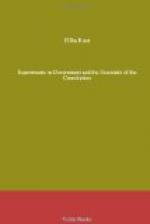The Constitution of the United States deals in the main with essentials. There are some non-essential directions such as those relating to the methods of election and of legislation, but in the main it sets forth the foundations of government in clear, simple, concise terms. It is for this reason that it has stood the test of more than a century with but slight amendment, while the modern state constitutions, into which a multitude of ordinary statutory provisions are crowded, have to be changed from year to year. The peculiar and essential qualities of the government established by the Constitution are:
First, it is representative.
Second, it recognizes the liberty of the individual citizen as distinguished from the total mass of citizens, and it protects that liberty by specific limitations upon the power of government.
Third, it distributes the legislative, executive and judicial powers, which make up the sum total of all government, into three separate departments, and specifically limits the powers of the officers in each department.
Fourth, it superimposes upon a federation of state governments, a national government with sovereignty acting directly not merely upon the states, but upon the citizens of each state, within a line of limitation drawn between the powers of the national government and the powers of the state governments.
Fifth, it makes observance of its limitations requisite to the validity of laws, whether passed by the nation or by the states, to be judged by the courts of law in each concrete case as it arises.
Every one of these five characteristics of the government established by the Constitution was a distinct advance beyond the ancient attempts at popular government, and the elimination of any one of them would be a retrograde movement and a reversion to a former and discarded type of government. In each case it would be the abandonment of a distinctive feature of government which has succeeded, in order to go back and try again the methods of government which have failed. Of course we ought not to take such a backward step except under the pressure of inevitable necessity.
The first two of the characteristics which I have enumerated, those which embrace the conception of representative government and the conception of individual liberty, were the products of the long process of development of freedom in England and America. They were not invented by the makers of the Constitution. They have been called inventions of the Anglo-Saxon race. They are the chief contributions of that race to the political development of civilization.




